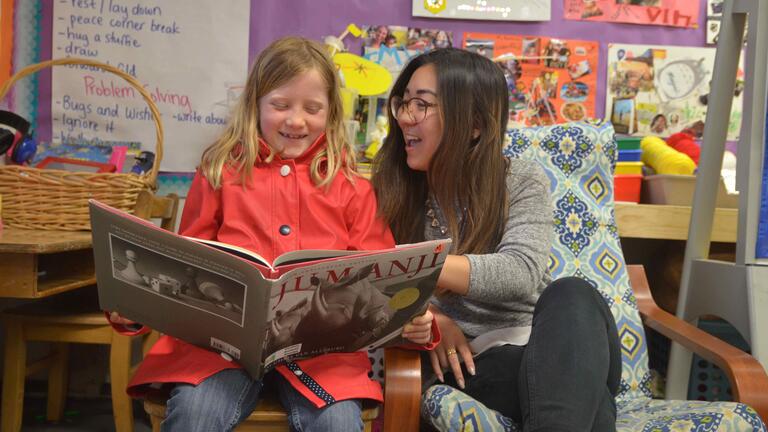
Program Overview
During the first four years, students will complete the requirements for their major and participate in undergraduate field experiences, while also taking graduate-level courses offered through the School of Education, resulting in the completion of a bachelor’s degree and the first half of a master’s degree. Students will formally apply for admission to the School of Education during their senior year.
Starting The Program
The first course in the program, Intro to the Teaching Profession, is required for all students. It is also open to any USF student who would like to explore the possibility of a teaching career, but may not feel ready to commit to a special program. This course is offered every semester.
Credential Tracks
Program graduates earn a Preliminary California Teaching credential in one of the following:
Multiple Subjects Track
This track prepares students to teach at the elementary school level (K-5). Students can choose any major in the College of Arts and Sciences.
Single Subject Track
This track prepares students to teach at the middle/high school level (6-12). Single Subject credentials are offered in the following subjects: English, Math, Science, and History (Social Science). Students are strongly encouraged to major in the subject area in which they are pursuing a credential.
The most popular majors for both tracks are: Sociology (with Education emphasis), Psychology, Critical Diversity Studies, English, and History. Students in both tracks are encouraged to minor in STEM Education or any other complementary minor.
Graduates of the five-year program leave campus with:
- Bachelor’s degree in chosen major
- Master of Arts in Teaching (MAT)
- Preliminary California Teaching credential in: Multiple Subjects (Elementary School) or Single Subject (Middle/High School)
Education Specialist Credential for Special Education
The Education Specialist Credential for Special Education may also be added after completion of this five-year program, for a total of six years.
-
Prepare for special education careers in diverse, multicultural, and urban schools while working as a full-time intern during your final semester.
Study Abroad
The ability to study abroad depends on when you entered the program and your progress in it. Most students who join the program early are able to study abroad.